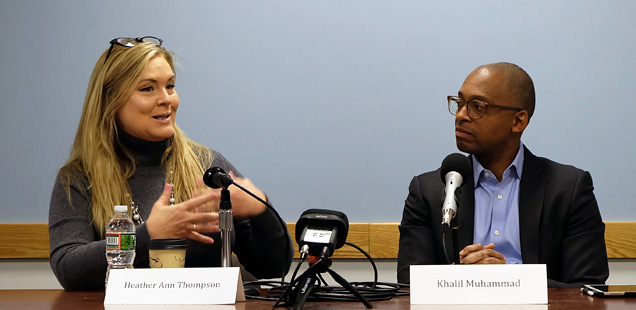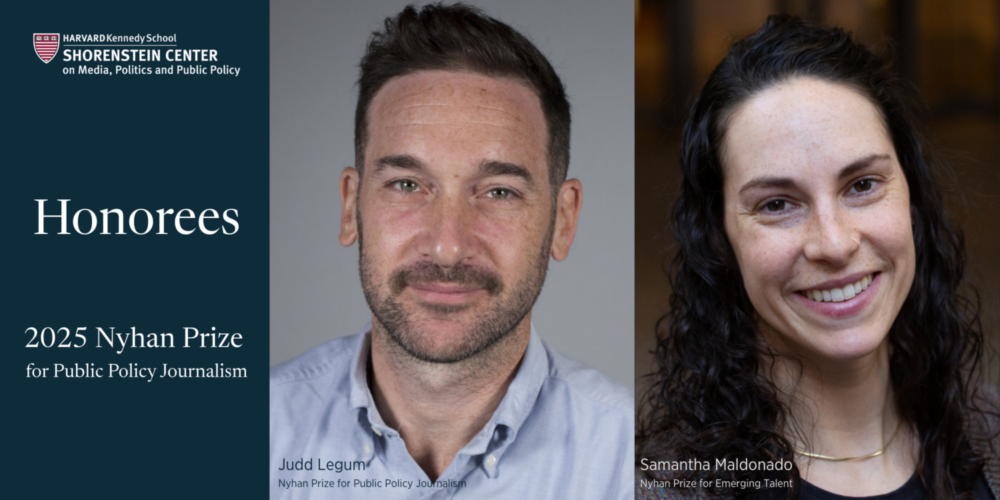
Center News
Ken Burns to give Theodore H. White Lecture on Press and Politics
Newsletter

Our weekly roundup of news found at the intersection of media, politics, policy and technology, from the Shorenstein Center and from around the web. Sign up to receive Media and Politics Must Reads in your inbox each week. Also connect with us on Twitter and Facebook for more updates.
Heather Ann Thompson on the Criminal Justice System and the Media. Heather Ann Thompson, a historian at the University of Michigan and Pulitzer Prize-winning author, discussed the Attica Prison uprising of 1971, its media coverage, and its legacy.
New Single Subject News Project Blog. How can digital news outlets navigate the search and social media dominated web to find readers who will appreciate their stories? How can they build relationships with those readers and turn them into financial supporters? How can the best practices these organizations are learning benefit the field of journalism as a whole? Our Single Subject News Project aims to tackle these questions and others.
New Jobs at the Shorenstein Center. Would you like to contribute to research and programming at the intersection of media, politics, policy, and technology? We’re hiring for multiple new positions, including Executive Director.
Facebook’s New Controversy Shows How Easily Online Political Ads Can Manipulate You. Dipayan Ghosh, Joan Shorenstein Fellow, and Ben Scott, write, “And as the days follow and the details are parsed about how this happened and who is to blame for malign social media advertising, we should not lose sight of a more basic question. As they stand, are the ways that social media sites use personal data to sell and publish political ads good for democracy in the first place?” Ghosh also appeared on NPR this week.
“Like They’ve Never, Ever Seen in This Country”? Political Interest and Voter Engagement in 2016. A new paper by Markus Prior, fall 2016 fellow, and Lori D. Bougher, finds that contrary to the narrative of record-breaking attention to the Trump candidacy, the public’s interest and engagement in the fall of 2016 were similar to other recent elections.
Free Online Course on Identifying Misinformation. How do you know if a video you found online is authentic? Is there a tool to help verify where a photo was taken? A new online course from First Draft, founded by Claire Wardle, shows journalists how to use free tools to track down, source, and verify information found online. The one-hour course, which is free, is divided into multiple lessons. Journalism faculty can also integrate parts of the course into their own lesson plans.
The Uprising of Women in Red States Is Just Beginning. Sarah Smarsh, Joan Shorenstein Fellow, writes, “Women in industries overlooked by our narrow, sexist definition of ‘working class’ are challenging this country to expand its vision of labor beyond white men with tool belts, and make good on the promises of democracy.”
How To Battle Media Addiction In The Age Of Trump. Dan Kennedy, spring 2016 fellow, writes, “I try to remind myself to slow down, to engage with my preferred digital news sources as I would a print newspaper, scanning their home pages not just for news I’m looking for but for news I’m not looking for as well.”

Center News

Center News

Center News